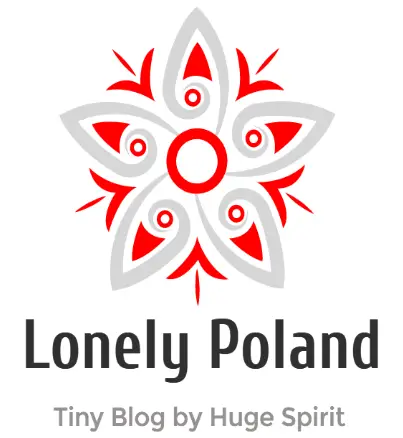There’s a quirky episode on the „Kult America” channel that addresses a peculiar question – „Why Polish people don’t smile?”. The host, Ryan Socash, an American expatriate living in Poland, shares his insights gathered from multiple sources and contrasts Polish expressions with American norms. Interested to know what conclusions he drew?

Decoding the Polish Lack of Smiles
Ryan Socash, an American who decided to immerse himself in the Polish way of life a couple of years ago, has since been exploring the language and diving head-first into the cultural nuances of the country. His Youtube channels, „It’s History” and „Kult America”, act as the canvas on which he paints vivid images of Poland’s stories.
Not just sticking to language, Socash’s channels span a range of topics from the nation’s historical roots, its culturally rich rock music scene, to the most eccentric Polish dishes. He even did a special segment on the culinary arts of the Kashubia region recently.
However, the most recent addition to his array of topics, stirs a different pot. A question that many Poles have pondered upon for years, but seldom voiced – Why don’t Poles smile often?
↳ PRO TIP: Do you like traveling? Then before you buy any ticket or book an attraction, check if it's available in this worldwide Viator Database. You may save a lot of money and time. No need to thank me :)
Poles and Smiles – A Sincere Connection
Let me say that the episode starts with Socash narrating the story of his fellow American expat Edward Reid, who had his share of culture shock when he moved to Poland from sunny Florida. The lack of smiles initially bewildered him, but with time, he started to understand the rationale behind it.
Edward notes, „They’ve had a turbulent history and the gloomy weather does affect the mood”. This, he believes, are the primary reasons behind the stern expressions.
However, I think it’s worth to say that he points out that the absence of smiles does not equate to a lack of emotions among Poles. In fact, when Poles do smile, their smiles are heartfelt and warm, quite unlike what he has observed among Americans.
He even goes on to say, „A lot of times when Americans smile, it’s artificial. But when Poles smile, it’s sincere. And now, I much prefer their genuine expressions over the American façade„.
In the end, he reassures, „I am convinced that Poles are intellectual people who know how to enjoy themselves. Trust me, with them, you will never go hungry. They’re the most hospitable people I’ve ever met”.
Smiles and Laughter – More Than Meets the Eye
Continuing this exploration, the episode also features the perspective of a Polish individual, Tomasz Rapacz, who has flipped the script and is now residing in the United States. Tomasz observes that in Polish culture, smiling is often equated to laughing, or worse, laughing at someone.
He declares, „In reality, it’s somewhat impolite to smile at strangers”.
He adds, „Smiling in Polish culture can come across as if I’m mocking you„. He explains this with an example from a grocery store, where the customary greeting of „good morning” can lead to a more pleasant interaction with the shopkeeper, including their willingness to assist you.
Are Poles Really Gloomy?
What explains the discrepancy in the frequency of smiles across cultures? A Polish scholar offers insights into why some nations seem to smile more readily than others.
Many Polish folks, upon visiting the USA and Western Europe, make an interesting observation:
People often smile at each other! Not excessively, and certainly not everyone, but still, it’s less common to find a stern, grumpy face in these regions compared to Poland.
In Poland, it’s not typical for people to smile openly at each other. A common piece of advice given to children in Poland is, „Stop grinning like a fool”.
The „Why” Behind it
A study by Dr. Jakub Kryś, a researcher at the Polish Academy of Sciences, alongside international colleagues, provides an explanation. The researchers discovered that in some countries, including Poland, a smile doesn’t necessarily imply opennes or warmth. On the contrary, it might even be viewed as a sign of dishonesty or ill intent.
In his research, Dr. Kryś discusses a cultural concept known as „uncertainty avoidance”.In simple terms, it refers to the extent to which a society attempts to minimize the risk of failure, indicated by a preference for clear laws, rules, and regulations. In nations with high uncertainty avoidance indices (like Poland, Greece, and Latin America), people tend to avoid risky decisions and are slower to embrace change. The future is perceived as unpredictable and beyond their control.

On the other end of the spectrum, you’ll find countries like Singapore and Protestant-majority nations, where there’s a greater willingness to take risks.
A Smile or a Sign of Naivety?
Interestingly, the study showed that in countries with high uncertainty avoidance, a smile is often misinterpreted as something peculiar. You might be wondering, „How can one smile when the world is so complex and unpredictable?” On top of that, in such countries, smiling is often perceived as an indication of foolishnes or a lack of understanding of the harsh realities of the world. It becomes tricky to determine whether a smile reflects good intentions or malevolent motives.
It was found that in countries like Germany, Switzerland, China, and Malaysia, smiling faces were considered significantly more intelligent than those without smiles. However, in places like Japan, India, South Korea, and Russia, smiling individuals were seen as much less intelligent. Even after accounting for other factors like national wealth, the association between smiling broadly and being perceived as less intelligent remained. Furthermore, in countries like India, Argentina, and the Maldives, smiling individuals were also seen as less sincere.
Where Does Poland Stand?
Poland doesn’t exhibit an extreme pattern like Japan or Russia, but it’s still more likely for a person flashing a grin to be considered a fool compared to the situation in Western European nations.
However, it’s worth noting that other studies on the same topic highlight other factors such as societal hierarchy and cultural norms. Regardless, Dr. Kryś’s study offers a significant clue as to why smiles are a rare sight on Polish streets.
The Linguistic Barrier
Getting back to our Youtuber – Socash evaluates that the truth probably lies somewhere in the middle of these two viewpoints. The difference in how frequently Americans and Poles smile might also be due to the linguistic divergence between the two cultures.
In his opinion, the formal and polite phrases fundamental to Polish conversations create a certain barrier. The obligatory respect demanded in these interactions reserves smiles for appropriate moments.
The Shadows of Socialism
Socash chuckles at the notion that Poles don’t smile but concedes that the lack of smiles among shop assistants is a harsh reality. This trait is often attributed to the lingering effects of living under a socialist economy.

To substantiate this, Socash shares the opinion of a netizen, Piotr Chaba, who asserts that in a centrally planned economy, power was in the hands of the shopkeeper, and stores didn’t have to vie for customers.
- You may also want to read: How Poland Became Communist After WWII?
Piotr explains:
„Given the scarcity of goods in stores, it was the customer who needed to be courteous and respectful, hoping it would improve their chances of obtaining some items. Demand far exceeded supply„.
According to Piotr, this has led to a cultural reversal, and he estimates that it might take another generation or two to overcome this phenomenon.
Socash wraps up the entire discussion with a simple advice – „If you want to make Poles smile, give them a reason”.
References:
- https://www.kuba.krys.pl/
- https://smilesincluded.com/the-psychology-of-smiling-anxiety-and-depression-resources



